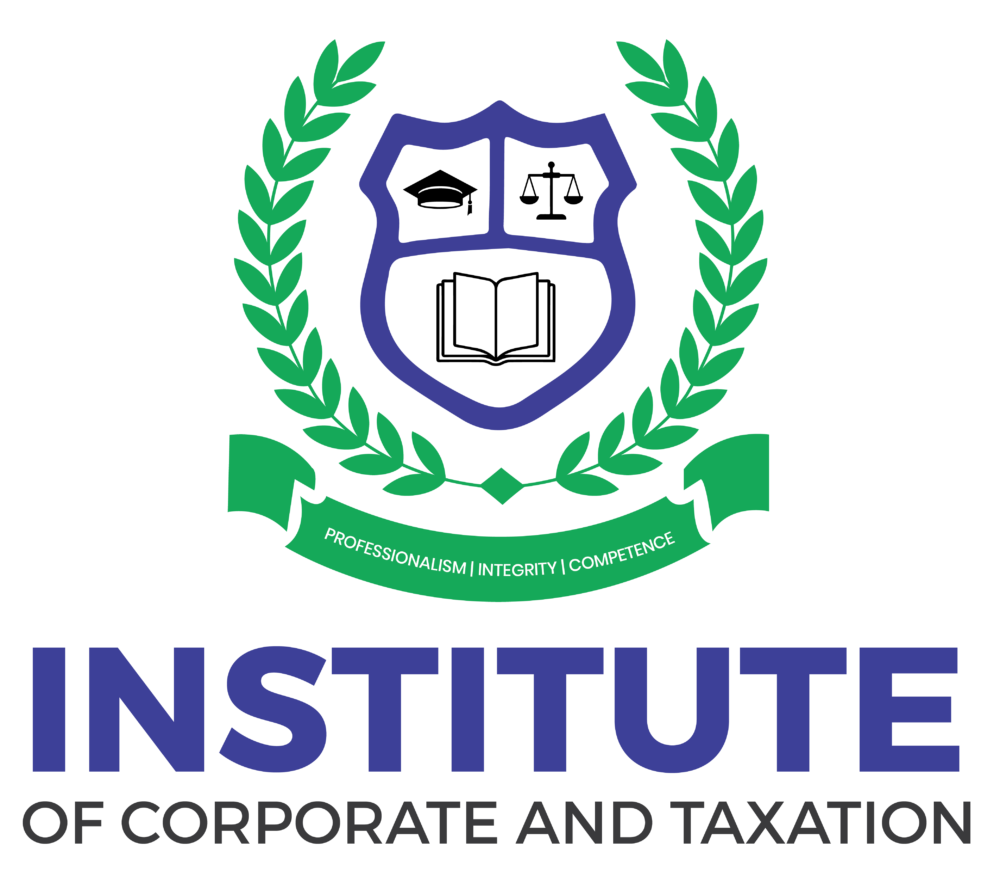
Top 5 Reasons Pakistani Students Choose US Taxation Courses
Introduction – The Rise of US Taxation Courses in Pakistan
The landscape of professional education in Pakistan has witnessed a remarkable transformation, with US taxation courses emerging as one of the most sought-after career development paths. This boom is not accidental—it mirrors the basic changes in the way American accounting firms conduct business and the unprecedented possibilities that exist for Pakistani professionals within the global tax services environment.
As we walk into 2025, the need for US taxation skills among Pakistani students has seen a record surge. Big US CPA firms now consistently outsource sophisticated tax assignments to South Asian experts, establishing a flourishing environment where geographical distances no longer hamper career growth. The synergy of Pakistan’s firm education infrastructure, English-speaking capabilities, and low-cost service delivery has established our professionals as the go-to partners for American tax practices.
The value of international tax expertise goes far beyond direct job opportunities. With an interconnected global economy, individuals possessing US taxation principles are at an advantage with skills that open doors in various industries and locations. Whatever the direct role is with US companies, working with multinational organizations, or developing solo practices, US tax skills have emerged as a strong asset in the competitive job market.
Reason 1 – High Demand for US Tax Professionals
Outsourcing of US Tax Work to Pakistan & India
The outsourcing revolution in US tax services has created extraordinary opportunities for Pakistani professionals. U.S. accounting firms are coming under increasing pressure from rising costs of operations and shortages of skills, prompting them to look for skilled professionals worldwide. Pakistan has become a top destination for this outsourced activity, with thousands of tax returns now being processed by Pakistani professionals every tax season.
This is not just about cost arbitrage—American companies have found that Pakistani tax experts provide outstanding quality work with an impressive eye for detail. The time zone benefit permits round-the-clock efficiency, with Pakistani staff working when US offices are dark, doubling the efficiency of operations. Large companies such as H&R Block, Jackson Hewitt, and many regional CPA practices now have in-place dedicated staffs in Pakistan, handling everything from basic individual returns to sophisticated corporate filings.
Growing Number of US-Based Accounting Firms Hiring Offshore Talent
The trend of US accounting firms establishing offshore operations has accelerated dramatically. What started out as pilot experimental programs has turned into operational strategic models. Companies that previously were hesitant to hire offshore now vie for Pakistani talent aggressively, seeing the competitive edge that global teams offer.
Mid-size CPA firms are especially advantaged by Pakistani partnerships, as they can tap into specialized talent without the attendant cost of keeping large domestic staff on the payroll. Such firms often begin by outsourcing mundane compliance work but soon extend the relationship to tax planning, research, and even client consultation assistance. Pakistani professionals who prove competent soon find themselves central to their firms’ operations, with career advancement equal to or better than that of their US-based peers.
Shortage of Skilled US Tax Professionals in the Market
The United States is experiencing a critical tax professional shortage with no indication that it will relent. According to the American Institute of CPAs, accounting graduates have fallen by 40% in the last ten years as tax services demand continues to increase. This structural discrepancy results in persistent demand for skilled professionals irrespective of their geographical location.

For Pakistani students, the shortage comes in the form of employment security and negotiating power. Unlike with over-the-counter markets where competition is intense, US taxation presents a field in which competent professionals are truly appreciated and solicited for. The two-way combination of technical proficiency and cultural flexibility that Pakistani professionals carry renders them especially attractive to US employers looking for longer-term resolutions to their personnel concerns.
Reason 2 – Remote Work & Freelance Opportunities
US CPA Firms Outsourcing Tax Returns to Pakistani Professionals
The tax return preparation market has become totally digital, facilitating easy interaction between US companies and Pakistani experts. With demand for tax preparers peaking from January to April, there is a plenty of opportunity for trained experts. Pakistani tax preparers prepare 15-25 returns per day during tax season at a pay of $15-30 per return based on complexity.
The process has become remarkably streamlined. US firms provide secure access to client documents through encrypted portals, Pakistani professionals prepare returns using industry-standard software, and quality review happens in real-time. This model has proven so successful that many firms now maintain year-round Pakistani teams handling amended returns, tax planning, and audit support.
Remote Job Growth After COVID-19
The pandemic permanently altered the professional services landscape, normalizing remote work arrangements that once seemed impossible. US accounting firms that previously insisted on physical presence now actively recruit remote professionals globally. For Pakistani tax professionals, this paradigm shift eliminated the primary barrier to accessing US employment opportunities.
Remote positions span the entire spectrum of tax services. Junior tax associates take home $25,000-35,000 per year based in Pakistan, while senior tax analysts earn $45,000-60,000. Experienced tax managers with credentials can make $70,000+, all while enjoying Pakistan’s lower cost of living. These are not stopgap measures—companies provide full benefits, career advancement, and opportunities for promotion to remote workers.
Freelance Opportunities in US Tax Filing (1040, 1120, 1065)
Freelancing in US taxation is unmatched in its adaptability and earning capacity for Pakistani professionals. Individual returns (Form 1040) generate consistent income for tax season, with expert preparers collecting $500-1,500 per week working part-time. Business returns (Forms 1120 corporations and 1065 partnerships) are more lucrative with fees as high as $100-500 per return based on complexity.
The freelance model is most suitable for Pakistani professionals juggling multiple responsibilities. Evening work on simple returns can be done by students while in school, increasing expertise and client connections over time. Senior professionals usually have portfolios of US clients throughout the year, giving tax planning, quarterly estimates, and strategic recommendations. Some freelancers working in Pakistan earn more than regular employment for less time, illustrating the potential of the model.
Reason 3 – Higher Salary Potential
Earning in USD from Pakistan
The potential to earn US dollars while residing in Pakistan is the creation of phenomenal financial benefits. Even starting salaries of $2,000 per month are equivalent to PKR 550,000+, well above domestic market prices for the same qualifications. The currency arbitrage enables Pakistani professionals to reach financial milestones within decades using conventional career channels.
The stability of rupee earnings offers rupee devaluation protection, a long-standing worry for Pakistani professionals. While local wages fail to keep up with inflation, dollar earnings can buy the same as before, thus the capacity to accumulate wealth in the long term. A majority of US tax professionals indicate the ability to become financially independent within 5-7 years, buying houses, paying for education, and accumulating investment portfolios unthinkable with rupee earnings.
Career Development: Tax Associate → Senior Tax Analyst → Tax Manager
The US taxation career ladder is linear progression with aligned pay raises. Tax associates begin at $25,000-30,000 with an emphasis on return preparation and simple compliance. At 2-3 years, senior tax analyst promotion involves major return work and client contact with salaries of $40,000-50,000.
Tax managers with teams and client relationships earn $60,000-80,000, senior managers and directors earning over $100,000. This development takes around 7-10 years, although exceptional performers move more quickly. Pakistani professionals’ solid technical expertise and hard work tend to speed up progress, many reaching management levels earlier than would be expected.
Freelancing vs. Full-Time Employment Earnings
The decision between working as a freelancer and being employed is based on personal situations and risk tolerance. Employment provides stability with regular monthly pay, benefits, and formal career advancement. Earnings annually would be around $30,000 for novices to $80,000+ for seasoned experts.
Freelancing can command more income but involves business development and risk management skills. Effective freelancers indicate taking home $50,000-100,000+, and peak performers make even more. Variability in income, absence of benefits, and self-employment tasks need to be factored in. Most Pakistani professionals take a hybrid strategy, having part-time jobs while establishing freelance practices, ultimately moving to the desired model.
Reason 4 – Practical Skill Development
Hands-on Training with US Tax Software (Drake, UltraTax, ProSeries)
Mastery of professional tax software distinguishes employable candidates from theoretical learners. Drake Tax, popular among small firms, offers intuitive interfaces ideal for beginners. UltraTax CS, the flagship offering from Thomson Reuters, has top-of-the-line positions in large firm markets with extensive features in complex returns. Intuit’s professional product, ProSeries, fills the gap with high-end capabilities and easy-to-use design.
Pakistani training programs are increasingly focused on software skills, realizing that they are crucial for on-job productivity. Students work with real return scenarios, studying navigation shortcuts, diagnostic aids, and procedures on e-filing. Such hands-on practice is highly useful in interviews, where employers can evaluate practical skills on the spot. Professionals who are well-versed on several platforms fetch top pay rates, as they can easily fit into the workflow of any firm.

Exposure to Real US Tax Returns (Individual & Business)
Use of real US tax returns gives insight not available from theory alone. Personal returns give the sophistication of US tax law, with multiple sources of income, deductions, credits, and states to consider. Pakistani professionals become familiar with Schedule C for business income, Schedule E for rental income, and Schedule D for investment transactions.
Business returns provide an added layer of complexities. Corporate returns (Form 1120) involve comprehension of book-tax deferrals, depreciation systems, and tax credits. Partnership returns (Form 1065) include sophisticated allocation rules and preparation of K-1s. This practical experience hones problem-solving competencies and professional judgment critical for career progression. Pakistani professionals with expertise in these complexities become irreplaceable to their employers.
Practical Experience Enhances Global Career Prospects
US tax skill unlocks opportunities outside U.S. companies. Multinationals appreciate individuals who know US tax considerations of cross-border transactions. International consulting houses hire experts with the expertise to counsel US tax issues. Even foreign companies that have operations or investments in the United States need US tax skill.
This adaptability renders US tax education a valuable career investment. Pakistani professionals cite using their US tax skills to obtain Big Four, international bank, and multinational company jobs. The analytical, detail-oriented, and regulation-oriented skills gained from US tax experience apply across professional settings, generating career versatility uncommon in specialized domains.
Reason 5 – Gateway to US Accounting Careers
Path to CPA (Certified Public Accountant) & EA (Enrolled Agent)
US tax training often serves as the first step toward prestigious American certifications. The Enrolled Agent (EA) credential, granted by the IRS, represents the highest credential for tax professionals. Pakistani candidates can sit for EA exams from Pakistan, with testing centers available in major cities. EA designation allows unlimited practice before the IRS, commanding respect and higher fees.
The CPA license, while requiring additional steps including education verification and state board approval, remains achievable for determined Pakistani professionals. Several states now offer pathways for international candidates, recognizing foreign education and experience. Pakistani CPAs report dramatic career acceleration, with doors opening to senior positions and consulting opportunities previously inaccessible.
Opportunity for H1B/Remote Jobs with US Employers
While H1B visa challenges persist, US tax expertise significantly improves prospects for Pakistani professionals seeking American employment. Employers more readily sponsor visas for candidates with proven expertise and existing relationships. Many Pakistani tax professionals report starting with remote work, building trust and demonstrating value before receiving sponsorship offers.
Other visa options such as L-1 transfers also become available to professionals with international companies. Without even moving, remote employment with US-based firms provides career growth, professional enrichment, and networking benefits that create long-term opportunities. The secret is the establishment of skill and connections that make sponsorship a sensible investment for employers.
Strong Resume Boost for International Career
US tax expertise serves as a powerful differentiator on international job applications. Recruiters recognize the rigor required to master US tax law and the technical skills developed through tax practice. This credibility extends beyond tax roles—financial analysis, compliance, and consulting positions value candidates with US tax backgrounds.
Pakistani professionals report that US tax experience opened unexpected opportunities. Some transitioned to financial planning, leveraging tax knowledge to provide comprehensive advice. Others moved into technology, developing tax software or implementing automation solutions. The combination of technical expertise and practical experience creates versatile professionals capable of adapting to diverse career paths.
Recommended US Taxation Courses for Pakistanis
EA (Enrolled Agent) Program – IRS Certified
The EA program represents the gold standard for US tax professionals. The three-part examination covers individual taxation, business taxation, and representation practices. Pakistani students benefit from comprehensive study materials available online, with providers like Gleim, Surgent, and PassKey offering structured courses designed for international candidates.
Institute of Corporate and Taxation Islamabad stands out as Pakistan’s premier destination for EA preparation, offering comprehensive programs that combine IRS-approved curriculum with local support. Their EA program includes live sessions with US tax practitioners, practice exams, and job placement assistance. With their proven track record in international taxation training across US, UK, UAE, and Saudi markets, they provide unique insights into global tax careers.
Practical Training Courses (Seasonal Tax Preparation)
Practical courses focusing on tax season preparation offer the fastest route to employment. These programs, typically lasting 3-4 months, concentrate on Form 1040 preparation, common schedules, and software usage. Pakistani institutes partnering with US firms often guarantee interviews for successful graduates, with many securing positions before course completion.
The Institute of Corporate and Taxation Islamabad excels in practical training, offering hands-on experience with actual US tax returns under expert supervision. Their seasonal programs align with US tax calendar, ensuring students are job-ready when demand peaks. The institute’s connections with US firms facilitate direct placement, with reported success rates exceeding 75%.
CPA US Taxation Electives
For those pursuing CPA licensure, specialized taxation electives provide targeted preparation. These courses cover federal taxation, state and local taxes, and tax research methods. While CPA requires broader accounting knowledge, tax specialization enhances marketability and earning potential.
Online Mentorship & Internship Programs
Mentorship programs pairing Pakistani students with US tax professionals accelerate learning and network building. These arrangements provide real-world insights, career guidance, and potential job referrals. Virtual internships with US firms offer practical experience and often lead to permanent positions.
How to Get Started with US Tax Training
Eligibility & Requirements
US tax training welcomes students from diverse educational backgrounds. While accounting or commerce degrees provide advantages, they’re not mandatory. Basic requirements include strong English communication, analytical thinking, and attention to detail. Mathematical skills help but aren’t prohibitive—tax software handles calculations.
Most programs require computer literacy and reliable internet access for online learning and remote work. Age isn’t a barrier—successful students range from fresh graduates to mid-career professionals seeking transition. The key is commitment to learning complex regulations and maintaining accuracy under pressure.
Duration & Cost
Program duration varies significantly based on intensity and scope. EA preparation typically requires 6-12 months of dedicated study, with 15-20 hours weekly commitment. Practical tax preparation courses run 3-4 months, focusing on immediate employability. Comprehensive programs combining theory and practice may extend 12-18 months.
Costs range from PKR 50,000 for basic practical courses to PKR 300,000 for comprehensive EA programs including exam fees. The Institute of Corporate and Taxation Islamabad offers flexible payment plans, making quality education accessible. Return on investment typically occurs within 3-6 months of employment, making the financial commitment worthwhile.
Where to Find Quality Training (Institutes Offering Online Classes)
Quality training providers combine technical expertise with practical application. Institute of Corporate and Taxation Islamabad leads the market with comprehensive US taxation programs backed by international expertise. Their multi-country taxation expertise (US, UK, UAE, Saudi) provides unique perspective on global opportunities.
Online platforms like Becker, Roger CPA Review, and Wiley offer self-paced learning suitable for motivated students. Local institutes including SKANS and PAC have developed US tax programs, though quality varies. When selecting providers, prioritize those with proven placement records, industry connections, and comprehensive curriculum covering both theory and software training.
FAQs – US Taxation Courses for Pakistani Students
Which US taxation course is best for beginners?
For absolute beginners, practical tax preparation courses focusing on Form 1040 provide the most accessible entry point. These courses, typically offered by institutes like the Institute of Corporate and Taxation Islamabad, combine foundational knowledge with hands-on practice. They’re designed for employment within one tax season, making them ideal for those seeking quick returns on investment. After gaining experience, professionals can pursue EA or CPA credentials for career advancement.
Can I work for US accounting firms from Pakistan?
Absolutely! US accounting firms actively recruit Pakistani tax professionals for remote positions. Major firms like PwC, EY, and numerous regional CPA practices maintain Pakistani teams. The key is demonstrating US tax knowledge through certifications or practical experience. Starting with seasonal tax preparation work often leads to permanent positions. Many Pakistani professionals now work full-time for US firms, earning competitive salaries while working from home.
How much does US taxation training cost in Pakistan?
The scope of the program and the reputation of the provider have a significant impact on training costs. Basic practical courses, which provide enough knowledge for entry-level positions, range in price from PKR 50,000 to 80,000. Exam fees included, EA programs cost between PKR 150,000 and PKR 300,000. including exam fees. The Institute of Corporate and Taxation Islamabad offers various programs with flexible payment options. Consider this an investment—most students recover costs within 3-6 months of employment.
How long does it take to complete US tax training?
Timeline depends on your goals and available study time. Practical tax preparation courses run 3-4 months, perfect for quick employment. EA certification typically requires 6-12 months of preparation plus exam time. Working professionals studying part-time may need 12-18 months. The Institute of Corporate and Taxation Islamabad offers accelerated programs for motivated students, with some completing training in 2-3 months through intensive study.
Which software is used for US tax filing?
Professional tax software dominates US tax preparation. Drake Tax leads the small firm market with user-friendly interfaces. UltraTax CS serves large firms with comprehensive features. ProSeries and Lacerte from Intuit offer middle-ground solutions. TaxWise and TaxSlayer provide budget options. Pakistani professionals should learn at least two platforms to maximize employment opportunities. Most training programs include software instruction as core curriculum.
Can US taxation knowledge help me get a US job or H1B visa?
US tax expertise significantly improves immigration prospects, though guarantees are impossible. Employers more readily sponsor visas for professionals with proven expertise and existing relationships. Many Pakistani tax professionals start with remote work, building value before receiving sponsorship offers. EA or CPA credentials strengthen applications. Even without immediate visa success, US tax knowledge opens remote opportunities offering comparable benefits.
Is EA better than CPA for tax specialization?
EA and CPA serve different purposes. EA focuses exclusively on taxation, providing deep expertise valued by tax-focused practices. The credential is achievable from Pakistan without additional requirements. CPA offers broader recognition and versatility but requires extensive education verification and state board approval. For pure tax careers, EA often provides better return on investment. Many professionals pursue EA first, adding CPA later for maximum marketability.
Do I need an accounting degree to start US tax training?
An accounting degree helps but isn’t mandatory for US tax training. Because of their excellent work ethic, excellent education, and cost-effective service delivery Pakistani professionals are becoming increasingly important to American tax procedures.
Success in US taxation requires commitment, continuous learning, and strategic planning. However, the work is worth it because of the financial and professional rewards. The foundation for achieving ambitious career goals, whether they pertain to corporate career advancement, freelance flexibility, or entrepreneurial endeavors, is an understanding of US taxes.
While there are many opportunities and demand exceeds supply, now is the time to act. With the correct instruction from institutions like the Institute of Corporate and Taxation Islamabad, Pakistani students can alter their career paths and gain access to hitherto unimaginable international opportunities.
Conclusion
The decision by Pakistani students to pursue US taxation courses reflects strategic career planning in an evolving global marketplace. The five compelling reasons explored—high demand, remote opportunities, superior earnings, practical skills, and career gateway potential—create a compelling case for this educational investment.
As US firms continue expanding their global talent search and technology eliminates geographical barriers, Pakistani tax professionals find themselves uniquely positioned for success.Pakistani professionals are becoming more and more essential to American tax procedures due to their strong work ethic, high-quality education, and economical service delivery.
Dedication, ongoing education, and strategic planning are necessary for success in US taxation. But the financial and professional benefits make the work worthwhile. US tax knowledge serves as the cornerstone for accomplishing ambitious career goals, whether they are related to corporate career advancement, freelance flexibility, or entrepreneurial endeavors.
Now is the moment to take action while there are plenty of opportunities and demand outpaces supply. Pakistani students can change their career paths and access previously unthinkable global opportunities with the right training from organizations like the Institute of Corporate and Taxation Islamabad. Although it is difficult, it is possible to become a successful US tax professional; thousands of Pakistani professionals have already shown the way.





